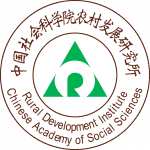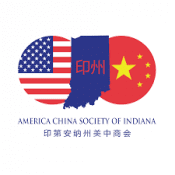New Year,
New Opportunities
2022 U.S. - China Agriculture Roundtable
Reflecting the strong commitment that leaders of both the U.S. and China have for finding areas of cooperation, especially around climate change, and the essential role that climate-smart agriculture can play to accomplish the goals set forth by the national leaders, USHCA is again organizing the virtual U.S. – China Agriculture Roundtable this spring.
Despite the significant issues that encumber the bilateral relationship between the U.S. and China, we were pleased that there was broad bipartisan U.S. support for, and participation in, our US-China Ag Roundtable last year.
This year, our virtual 4-part U.S.-China Agriculture Roundtable will again take place during the National Agriculture Week to honor Drs. Norman Borlaug, Yuan Longping, and George Washington Carver for their extraordinary contributions to the field of Agriculture and our world.
An event inspired by Norman Borlaug, Yuan Longping, and George Washington Carver
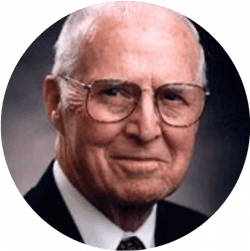
Norman Borlaug
Father of Green Revolution - Recipient of the Nobel Peace Prize
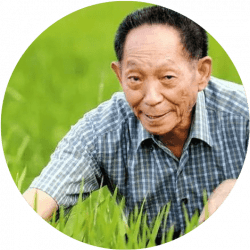
Yuan Longping 袁隆平
Father of Hybrid Rice - Recipient of World Food Prize
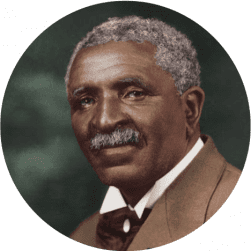
George Washington Carver
American Agricultural Scientist and inventor
Our belief is that US – China cooperation is essential if our planet will be able to successfully deal with the following three most critical global challenges: sustainably producing enough nutritious food to feed the growing population on our planet; countering and ameliorating the impact of climate change, especially on agricultural production; and preventing future pandemics of human, animal and plant diseases.
At the same time, to meet these challenges, it is essential that we have peace in the world and particularly peace between China and the United States. In that regard we strongly believe, as Dr. Borlaug demonstrated, that one of the best ways that peace can be attained is through agricultural cooperation.
The American Heartland, known as the “breadbasket of the world”, has played a significant role in the past laying the foundation for a productive U.S.-China relationship and can become a stabilizing force going forward again.
This year’s virtual U.S.-China Agriculture Roundtable will have four segments:
Opening Celebration
(Open to the public)
8:00 p.m. EST, March 21, 2022
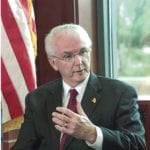
Governor Bob Holden,
USHCA Chairman and CEO
Former Governor of Missouri
Gov. Holden
Bob Holden served as Missouri’s 53rd Governor, 2001-2005. Prior to being elected Governor, Holden served two terms as Missouri State Treasurer and three terms as a Missouri State Representative.
Bob Holden has been in public service his entire adult life. In addition to holding elective office, Holden worked for State Treasurers James I. Spainhower and Mel Carnahan, United States Senator Thomas F. Eagleton, and Congressman Richard A. Gephardt.
During Governor Holden's term in office, he chaired the Midwest Governors Association; opened Missouri’s first trade office in China; created Missouri’s first Hispanic Outreach Committee; moved Missouri from 41st to 5th in terms of women in leadership positions; appointed over 200 African Americans to prominent leadership roles; established the state's first Youth Cabinet; and built the first LEED certified state office building in Missouri.
Bob Holden is currently the Missouri Co-Chair for the U.S. Global Leadership Coalition, and is an Executive Board member of the Missouri State NAACP Chapter. After leaving office in 2005, Holden founded the Holden Public Policy Forum and was a professor at Webster University for ten years. While at Webster University, he helped bring the first Confucius Institute to Webster University, St. Louis, Missouri.
For over 40 years, Bob Holden has been an active participant in the American Legion Missouri Boys and Girls State Program. He led efforts to bring the first delegations of Chinese students to be participants in this historic program. Since that first delegation to Missouri Boys and Girls State, he has lead the efforts to continue these student delegations of Chinese students to Missouri and Missouri students to China with plans to initiate delegations from other states.
Bob Holden believes that long term economic success for the United States and China must be built on mutual respect, clear understandings and honest dialogue. This can be achieved by expanding our cultural ties, creating more educational partnerships, and creating bridges of opportunities for successful business in both countries.
Gov. Holden was recently inducted to the Missouri Public Affairs Hall of Fame. Watch his honoree video here.
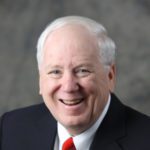
Ambassador Kenneth Quinn,
President Emeritus, the World Food Prize
Strategic Advisor & Member of US Heartland China
Association
Ambassador Quinn
Dr. Kenneth M. Quinn, former U.S. Ambassador to the Kingdom of Cambodia, assumed the leadership of the World Food Prize Foundation on January 1, 2000, following his retirement from the State Department after a 32 year career in the Foreign Service.
Inspired by the vision of Dr. Norman E. Borlaug, the founder of the World Food Prize, Ambassador Quinn has endeavored to build this annual $250,000 award into “the Nobel Prize for Food and Agriculture.” Held each October in Des Moines on or around World Food Day (October 16), the World Food Prize Laureate Award Ceremony, “Borlaug Dialogue” international symposium and Global Youth Institute have grown in size and stature under his direction.
With the support of the John Ruan family, Dr. Quinn has led the campaign which successfully raised over $30 million to restore the historic Des Moines Public Library and transform it into the World Food Prize Dr. Norman E. Borlaug Hall of Laureates. He provided the personal leadership to have the building designed to achieve LEED Platinum certification, the highest possible level of energy efficiency and resource conservation.
During his diplomatic career, Ken Quinn served: as a Rural Development advisor in the Mekong Delta; on the National Security Council staff at the White House; as Narcotics Counselor at the U.S. Mission to the United Nations in Vienna; for four years as Chairman of the U.S. Inter-agency Task Force on POW/MIAs; and as Director of Iowa SHARES, the humanitarian campaign that sent Iowa doctors, nurses, medical supplies and food to starving Cambodian refugees.
A fluent speaker of Vietnamese, Dr. Quinn acted as interpreter for President Gerald Ford at the White House and personally negotiated the first ever entry by U.S. personnel into a Vietnamese prison to search for U.S. POW/MIAs. He was also a member of the first U.S. team to gain entry to a former Soviet prison in Russia.
Ambassador Quinn, a graduate of Loras College in Dubuque, Iowa, has a M.A. in Political Science from Marquette University and a Ph.D. in International Relations from the University of Maryland. He and his wife Le Son have three adult children.

Elizabeth Knup,
China Director, Ford Foundation
Elizabeth Knup
Elizabeth Knup is the foundation's regional director in China, overseeing all grant making in the country from Ford's Beijing office. Prior to joining Ford in 2013, she served simultaneously as chief representative of Pearson PLC, one of the world’s foremost education and publishing companies, and as president of Pearson Education in China.
Having dedicated her career to developing stronger ties between China and the rest of the world in the education, nonprofit, and business sectors, Elizabeth started out at the National Committee on US-China Relations where, from 1988-98, she focused on expanding educational opportunities and strengthening social institutions in Beijing. In 1998, she moved to Nanjing and served as the American co-director of the Hopkins-Nanjing Center for Chinese and American Studies, overseeing the establishment of the center’s Institute for International Relations and a summer immersion Chinese language program. Later, she joined Kamsky Associates, a business strategy and investment advisory firm in Beijing.
Elizabeth is on the board of the National Committee on US-China Relations. She has served on the boards of numerous nonprofits, including the Institute for Sustainable Communities, the Capacity Building and Assessment Center, and the Global Environment Institute.
Elizabeth has a master's degree from the University of Michigan's Center for Chinese Studies and a bachelor's degree in political science from Middlebury College.
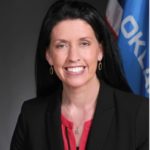
Blayne Arthur,
Secretary of Ag - Oklahoma
Secretary Arthur
On January 14, 2019, Blayne Arthur was sworn in by Governor Kevin Stitt as the Oklahoma Secretary of Agriculture—the state’s first female to hold the position. She acts as Governor Stitt’s chief advisor on policy development and implementation related to agriculture, food and forestry, and holds the titles of Oklahoma Commissioner of Agriculture and the President of the Oklahoma State Board of Agriculture.
Secretary Arthur grew up in Chickasha, Oklahoma, where her family raised horses, cattle, wheat, alfalfa and soybeans. Upon graduating from Oklahoma State University in 2004, with a bachelor’s degree in agricultural economics, Sec. Arthur took a role in small-business financing for Rural Enterprises, Inc and traveled throughout Oklahoma. Secretary Arthur began her tenure at the Oklahoma Department of Agriculture, Food, and Forestry in 2009 working for Secretary Terry Peach and later as the Deputy Commissioner of Agriculture for Secretary Jim Reese where she stayed from 2011 to 2016. In 2016, she served as the Executive Director for the Oklahoma 4-H Foundation until her appointment by Governor Stitt.
Secretary Arthur served as the President of the Midwestern Association of State Departments of Agriculture in 2019. She currently serves as the Animal Ag Committee Chair for the National Association of State Departments of Agriculture and the Secretary/Treasurer for Food Export Midwest. She is the 2016 Oklahoma Cattlemen’s Association Distinguished Service Award Recipient; remains active in Oklahoma Farm Bureau, Diamond Hats, Oklahoma Beef Council and Oklahoma 4-H and FFA programs. Arthur has been selected for multiple honors including Oklahoma Agricultural Leadership Program Class XV, a Journal Record 2011 Achievers Under 40 honoree, a Journal Record Fifty Making a Difference Honoree in 2019 and 2020 and the 2014 Oklahoma Agricultural Woman of the Year.
Secretary Arthur married Jerrod Arthur in 2006 and they have two children, Kelton and Kennedy, who both enjoy showing cattle and horses. The Arthur family lives east of Stillwater and raise show cattle for 4-H and FFA members.

Mike Beam,
Secretary of Ag - Kansas
Secretary Beam
Mike Beam was appointed secretary of the Kansas Department of Agriculture by Governor Laura Kelly in January 2019 and confirmed in April.
Beam came to KDA following 38 years of experience in association management for the Kansas Livestock Association. He has served as the Executive Director of the Ranchland Trust of Kansas, an affiliate of KLA, for 15 years.
He has dedicated his career to assisting farmers and ranchers to advance their policy and public relations needs and in building highly visible, responsive and respected organizations. In his role at KLA he participated and led coalitions in strategizing and implementing legislative and regulatory initiatives.
Beam began his career as a County 4-H and Youth Extension Agent in Dickinson County, following his graduation from Kansas State University with a bachelor’s degree in animal sciences and industry. He began at KLA in 1980 as a field representative before being named Executive Secretary of Cow-Calf/Stocker Division in 1983, and in later years he became Senior Vice President at KLA. He began as Executive Director of Ranchland Trust of Kansas in 2003.
His responsibilities at KLA allowed him to serve on several statewide committees and task forces, including Governor Brownback’s Flint Hills Working Group; the smoke management plan task force; the Kansas Technical Committee, advising USDA’s Natural Resources Conservation Service; the Ecotourism Steering Committee; a Kansas Department of Wildlife, Parks & Tourism task force regarding Kansas deer hunting laws; and the KDWPT Nongame Wildlife Advisory Council.
In addition to his professional duties at KLA, Beam has demonstrated his leadership as president of several state and regional organizations, including Partnership of Rangeland Trusts, Symphony in the Flint Hills, Agribusiness Council of Kansas City and Kansas Society of Association Executives.

Chris Chinn,
Director of Ag - Missouri
Director Chinn
Chris Chinn, a fifth generation Missouri farmer from Clarence, was named Director of the Missouri Department of Agriculture in January 2017. Director Chinn has held leadership positions in agriculture on the local, state and national level for more than 15 years, working to move the state’s agriculture industry forward.
As a trailblazer in ag advocacy, Chinn has established her brand through social media and public speaking. Her blog and Twitter audiences have attracted more than 10,000 faithful followers who have tuned in to hear her farm story. Through her outreach, she stands up for both rural and urban Missouri by bridging the gap between farmers and consumers and contributes to the advancement of the state’s No. 1 industry.
As the Director of Agriculture, Chinn created the MORE Strategic Initiative to protect and promote Missouri’s agriculture industry. The four pillars of the initiative are Feed MORE, Reach MORE, Connect MORE and Empower MORE, tying in to the needs of farmers and consumers in our state. She also works closely with Governor Parson and fellow cabinet members. Together they have advanced the Governor’s workforce development and infrastructure priorities. These priorities help expand job opportunities in agriculture and repair roadways, bridges and buildings.
Chinn is a member of the National Association of State Departments of Agriculture (NASDA), which represents the departments of agriculture in all 50 states. She is a member of the Missouri State Fair Commission, Missouri Wine & Grape Board, Missouri Development Finance Board and Missouri Agricultural and Small Business Development Authority Board of Directors.
In 2007, she served as chairman for the American Farm Bureau Young Farmers and Ranchers Committee and served on the board of directors for the American Farm Bureau Federation. In 2013, Chinn became a national spokesperson when she was named one of four Faces of Farming and Ranching by the U.S. Farmers and Ranchers Alliance, an honor that identifies farmers and ranchers that are eager to share their farm story. She has served as a board member for the Shelby County University of Missouri Extension Council and the Long Branch Area YMCA board of directors. Chris is a member of the Missouri Pork Association and served on the association’s state board since 2015. She is a member of ALOT (Agriculture Leaders of Tomorrow) Class 13, American Farm Bureau PAL (Partners in Agricultural Leadership) Class 5 and is a member of the Shelbina Christian Church.
Chinn resides on her family’s farm in Shelby County with her husband, Kevin and her two children, Rachelle and Conner, where she helps manage their 1,600 sow farrow-to-finish hog operation, as well as their family feed mill. Chinn and her husband also have a small cow-calf herd, as well as raise corn, soybean and hay.
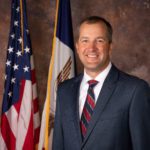
Mike Naig,
Secretary of Ag - Iowa
Secretary Naig
Mike was elected as the 15th Iowa Secretary of Agriculture in November 2018. He previously served as the Deputy Secretary at the Iowa Department of Agriculture and Land Stewardship.
In a state where agriculture is a leading economic driver, Mike knows that protecting our air, soil and water is essential to our success. He works with initiatives that encourage public-private partnerships and leads efforts that will protect our natural resources.
Mike Naig grew up on a family farm in the northwest corner of the state near Cylinder, Iowa and he continues to be involved in the operation today.
Mike is a graduate of Buena Vista University in Storm Lake with degrees in biology and political science. He and his wife Jaime have three boys.
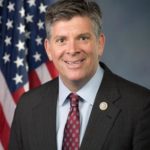
Darin LaHood,
Illinois Congressman from the 18th District
Congressman Darin LaHood
Congressman Darin LaHood, born and raised in Peoria, serves the constituents of the 18th District of Illinois. Sworn into the US House of Representatives on September 17, 2015, LaHood quickly transitioned into office after his special election win on September 10. He won re-election to serve his third full-term in Congress on November 3, 2020, defeating his opponent with 70-percent of the vote.
The 18th District spans 19 counties across central and west-central Illinois, ranging from McLean County (Bloomington-Normal) to Adams County (Quincy). LaHood serves close to 710,000 constituents.
Prior to his election to Congress, LaHood served four years in the Illinois State Senate, beginning in 2011. LaHood spent more than nine years as a State and Federal Prosecutor. From 2001-2006, he worked for the U.S. Department of Justice as an Assistant United States Attorney in Las Vegas, Nevada. LaHood has also served as an Assistant State's Attorney in Cook County and Tazewell County. From 2006 up until his election to the House of Representatives, he practiced with the Peoria law firm of Miller, Hall & Triggs.
LaHood's record throughout his public service has resonated a strong, conservative record, promoting economic development and fiscal responsibility. LaHood has been an outspoken advocate for creating a better business climate in Illinois to boost the state and national economy and to create jobs for Illinoisans. Recognizing the need for reform, LaHood has fought to increase transparency and promote ethical behavior. He looks to build a strong, pro-growth economy, while fighting to reduce a record deficit that threatens the future of our children and grandchildren.
LaHood currently serves on the House Ways and Means Committee after being selected by his colleagues in January of 2018. The Ways and Means Committee is the House’s oldest committee and has jurisdiction over all taxation, trade and tariffs, and other revenue-raising measures. He serves on the Ways and Means Subcommittees on Tax Policy and Trade.
In March of 2021, LaHood was appointed by House Republican Leader Kevin McCarthy to serve on the House Permanent Select Committee on Intelligence. The committee oversees the nation’s intelligence agencies including components of the Departments of Defense, Homeland Security, Justice, State, Treasury and Energy. LaHood serves on the Counterterrorism, Counterintelligence, and Counterproliferation (C3) and the Intelligence Modernization and Readiness (INMAR) Subcommittees.
LaHood also serves on the House Democracy Partnership. He currently co-chairs the US-China working group, the U.S.-Brazil Caucus, the Digital Trade Caucus, the U.S.-Lebanon Friendship Caucus, the Congressional Bus Caucus, and the Congressional Soccer Caucus.
LaHood, a third generation Peorian, graduated from Spalding High School. He earned a B.A. from Loras College and holds a J.D. from The John Marshall Law School. In 2013, he was selected as an Edgar Fellow, a program run by former Governor Jim Edgar, which highlights future Illinois leaders. In 2008, LaHood was recognized in Peoria as a 40 Leaders Under Forty award winner. An avid runner, he has completed five marathons.
Congressman LaHood and his wife Kristen currently reside in Dunlap and are the proud parents of three sons, McKay, Lucas, and Teddy.
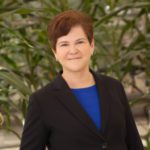
Krysta Hardin,
President & CEO of U.S. Dairy Export Council
Krysta Hardin
As president and CEO of the U.S. Dairy Export Council (USDEC), Krysta Harden leverages experience with agriculture, sustainability, food policy and the federal government to help fulfill USDEC’s mission to promote dairy exports and enrich the well- being of people, communities, and the planet.
In February 2021, Harden became the third president and CEO to lead USDEC since its founding by Dairy Management Inc. (DMI) in 1995. She is the first woman to lead the organization. Harden succeeds former USDEC President and CEO Tom Vilsack, who was confirmed in February 2021 as U.S. Agriculture Secretary in the Biden-Harris administration.
At USDEC, Harden directs a staff of dairy trade specialists, trade policy professionals, a global marketing team and a strategy and insights team. In addition, she oversees eight international offices working to facilitate dairy product and ingredient application knowledge, identify market opportunities, monitor regulatory activity and work toward improving the business climate for U.S. Dairy.
Working together and with its member companies, USDEC facilitates dairy product and ingredient application, identifies market opportunities, monitors regulatory activity and makes the case that U.S. dairy exports should compete on a level playing field with sound trade policy.
Harden plans to be active in global organizations, including the World Economic Forum, Global Child Nutrition Foundation, and the upcoming U.N. World Food Systems Summit.
Prior to taking the top spot at USDEC, Harden served dual roles as USDEC’s chief operating officer and DMI’s executive vice-president of global environmental strategy. In this capacity, she helped develop and launch the Net Zero Initiative, an industry wide effort that will help U.S. dairy farms of all sizes and geographies implement new technologies and adopt economically viable practices.
Before joining DMI, Harden served as chief sustainability officer with Corteva and DuPont. Harden also spent seven years working with Vilsack at USDA, nearly three of those years as deputy secretary, following posts as Vilsack’s USDA chief of staff and assistant secretary for Congressional relations. At USDA, Harden helped shape agriculture policy and led the implementation of the 2014 Farm Bill.
Prior to joining USDA, Harden was CEO of the National Association of Conservation Districts, where she provided national leadership for thousands of conservation districts across the nation, and worked with the American Soybean Association as senior vice president of Gordley Associates, where she concentrated on conservation and renewable energy issues. She also spent 12 years on Capitol Hill as staff director for the House subcommittee on peanuts and tobacco, and as chief of staff and press secretary for former Congressman Charles Hatcher.
Throughout her career in agriculture, Harden has focused on expanding opportunity for women, young people, immigrants, socially disadvantaged producers, returning veterans and retirees, among others. She serves as vice-chair of the National 4-H Council Board of Trustees and is a member of the board of directors for the Global Child Nutrition Foundation.
Harden received her B.A. in journalism from the University of Georgia in 1981. Harden and her husband, Charles Hatcher, live in Alexandria, Va.

NI Pin,
President of the Chinese General Chamber of Commerce - Chicago
Mr. NI Pin
Mr. Pin Ni is the President of Wanxiang America Corporation, the company he started in 1994. The company’s revenue grows from zero to $ 4.0 billion to date, crossing the area of automotive, clean energy, and real estate with operations in 27 states in USA. In January, 2016, he was honored as “The Most Influential Business Person of the Year” by China General Chamber of Commerce – U.S.A. In November, 2019, China Institute presented him the highest honor, the Blue Cloud Award, for his achievements as a “Bridge Builder” between China and the United States.
Mr. Ni is very active in community services. He serves as chairman of China General Chamber of Commerce – USA Chicago, board director of World Business Chicago, member of the Northwestern University Board of Trustees, member of the Advisory Board of the RAND Center for Asia Pacific Policy, board director of Chicago Council on Global Affairs, and board director of The Nature Conservancy Illinois Chapter.
Mr. Ni received his Bachelor degree and MBA degree from Zhejiang University. He has also studied in the PhD program in University of Kentucky’s Department of Economics
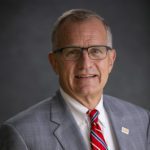
Jim Sutter,
CEO of the U.S. Soybean Export Council
Jim Sutter
USSEC Chief Executive Officer Jim Sutter grew up on a crop and cattle farm in northeastern Colorado and received a degree in agricultural business / economics from Colorado State University. Jim joined USSEC as CEO in 2010 after over 30 years of industry experience with Cargill, Inc. Since joining USSEC, he has led strategy development to ensure that the organization’s key focus is on differentiating and building a preference for U.S. Soy while also ensuring market access. Jim is active working with various industry associations around the world on behalf of U.S. Soy.

Erik Fyrwald,
CEO of Syngenta
Erik Fyrwald
- Erik Fyrwald joined the Syngenta Group, one of the world’s leading
agriculture companies, in June 2016 as Chief Executive Officer.
Erik Fyrwald served as chief executive officer of Univar, a leading distributor of chemistry and related services, from May 2012 until May 2016. In 2008, following a 27-year career at DuPont, he joined the Nalco Company, a leading water treatment products and services company, serving as chairman and chief executive officer until December 2011, when Nalco merged with Ecolab Inc. Following the merger, Erik Fyrwald served as president of Ecolab, a global provider of water, hygiene and energy technologies.
From 2003 to 2008, Erik Fyrwald served as group vice president of the agriculture and nutrition division at the DuPont Company. From 2000 until 2003, he was vice president and general manager of DuPont’s nutrition and health business.
Erik Fyrwald attended the University of Delaware, where he received a Bachelor of Science degree in chemical engineering in 1981. He also completed the advanced management program at Harvard Business School.
Erik Fyrwald serves on the boards of directors of Syngenta Group, Bunge, CropLife International, Eli Lilly, the Swiss-American Chamber of Commerce and the UN World Food Program Farm to Market Initiative. He is also Chairman of the Syngenta Foundation for Sustainable Agriculture.
3 Dialogues
(Invitation only)
U.S. – China Ag SME Showcase:
(March 24, 2022)
Ag Education Dialogue:
Food System Transformation & Climate Change
(March 31, 2022)
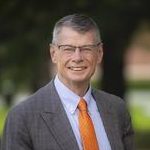
Dr. Thomas J. Coon,
Dean of the Division of Agricultural Sciences and Natural Resources at Oklahoma State Univ.
Dr. Coon
Thomas G. Coon joined Oklahoma State University as vice president and dean of the Division of Agricultural Sciences and Natural Resources in July 2014. He provides leadership for the Ferguson College of Agriculture and the university’s two state agencies: OSU Extension and OSU Ag Research. Coon works extensively with public and private agencies, community leaders and state and local elected officials. He serves as chief OSU administrator for more than 200 faculty, 300 Extension staff and 300 support and administration staff, located on-campus and across the state. Before joining the division, Coon was a professor of fisheries and wildlife at Michigan State University for 25 years before assuming the responsibilities of director of MSU Extension for nine years. He had previously served on the faculty at the University of Missouri for six years.
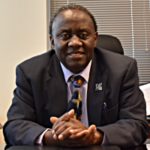
Dr. Moses Kairo,
Dean of the School of Agricultural and Natural Sciences at the Univ. of Maryland, Eastern Shore
Dr. Kairo
Coming soon...
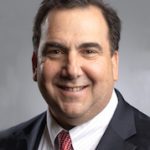
Dr. Daniel Robison,
Dean of the College of Ag. and Life Sciences at Iowa State Univ.
Dr. Robison
Daniel J. Robison began his tenure as the Endowed Dean’s Chair of the College of Agriculture and Life Sciences at Iowa State University in January 2019. He also serves as director of the Iowa Agriculture and Home Economics Experiment Station. Following a national search, he was announced as the 11th dean in the history of Iowa State’s agricultural college in October 2018.
The College includes approximately 4,500 students, 15 academic departments, and 600 faculty and staff (www. cals.iastate.edu). The College has a network of farm and field stations around the state - including new capacities in livestock, grain processing and biorenewables; extensive laboratory and greenhouse facilities; collaborative federal laboratories; Extension and outreach activities in all 99 Iowa counties; and about $60 million in annual research activity. There are also satellite campus facilities in Uganda, the U.S. Virgin Islands and Montana. Major initiatives in global engagement, innovation and entrepreneurship, sustainability, and agricultural vitality and food systems are continually being advanced. The college has key partnerships with public and private sector interests across the agricultural sector, and includes work in natural resources, technology, and life and social sciences.
Robison came to Iowa State from West Virginia University, where he served from 2012-2019 as the dean and experiment station director of the Davis College of Agriculture, Natural Resources and Design. Prior to that position, Robison served on the faculty at North Carolina State University for 16 years, where he directed the Hardwood Research Cooperative working with forest products industries and agencies across the South. He completed his tenure at NC State as professor and associate dean of research in the College of Natural Resources. Prior to NC State he worked on the faculty at the State University of New York College of Environmental Science and Forestry-Syracuse (SUNY ESF), and in a variety of capacities while in residence in Cote d’Ivoire West Africa.
Robison, a forester and forest entomologist by discipline, has published and presented, and trained graduate students in the areas of forest entomology and pest management, silviculture of natural hardwoods, biomass bioenergy plantation systems, agroforestry and clonal forestry. His international experience includes two years in West Africa as a consultant and volunteer for the West Africa Rice Development Association, African Development Bank, U.S. Peace Corps, and Agency for International Development. He has also done field work in countries that include Canada, Myanmar, Israel and South Africa.
Robison earned a doctorate in entomology from the University of Wisconsin-Madison in 1993. He earned a master’s degree in silviculture and forest influences in 1986 and a bachelor’s degree in forestry in 1982, both from SUNY ESF. He was a Fellow of the American Council on Education 2007-2008, with service at University of Alaska-Fairbanks and East Carolina University. Robison is a native of New Jersey. He and his wife, Julie, a native of Wisconsin, have two daughters.
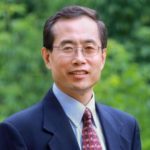
Dr. Jinhua Zhao,
Dean of Applied Econ. and Management at Cornell College of Ag. and Life Sciences
Dr. Zhao
Jinhua Zhao is a professor and the David J. Nolan Dean at the Charles H. Dyson School of Applied Economics and Management, Cornell University. Before joining Dyson, he was a professor of economics and director of the Environmental Science and Policy Program at Michigan State University. He was a co-editor of the Journal of Environmental Economics and Management and served on the editorial councils of JEEM and the Review of Development Economics, and is on the editorial committees of Review of Environmental Economics and Policy, Annual Review of Resource Economics and Frontier of Economics in China. He served on the Environmental Economics Advisory Committee of the US Environmental Protection Agency’s Science Advisory Board as well as the Air, Climate and Energy Committee of EPA’s Board of Scientific Counselors. He conducts research in the broad area of environmental and resource economics, with special interests in global climate change, renewable energies, water, technology adoption, dynamic decision making under uncertainty, and applied microeconomics in general. He also has research interests in China’s environment, including government regulation and individual behavior, environmental valuation and payment for ecosystem services. His publications have appeared in, among others, the Economic Journal, International Economic Review, Journal of Economic Theory, Journal of Public Economics, JEEM and American Journal of Agricultural Economics. His research projects have been funded by US National Science Foundation, US Department of Agriculture, and US EPA.
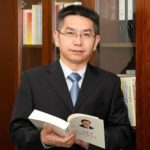
Dr. Taisheng DU,
Vice President of China Agricultural University
Dr. Du
Professor Du Taisheng was born in Shandong Province of China on June 16th, 1975. He received the B.S. & M.S. degree from Northwest A&F University (the original Northwest Agricultural University) in 1998 and 2001, the Ph.D. degree from China Agricultural University in 2006. He worked as an assistant professor during July, 2001 to July, 2003 in College of Water Resources and Architectural Engineering, Northwest A&F University. He joined College of Water resources and Civil Engineering of CAU as a lecture on July 2006, he became an associate professor on December, 2007, and became a professor on December, 2012. He was also a visiting scholar in Hong Kong Baptist University during January to May, 2007, January to April, 2010 and February to May, 2011 respectively. He will also become a visiting scholar in University of California, Riverside, USA from 2014 to 2015.
He is the executive deputy director of Experimental station of the Shiyanghe Experimental Station for improving Water Use Efficiency in Agriculture, Ministry of Agriculture. He is also the vice director of Department of Water Resources and Hydraulic Engineering, College of Water resources and Civil Engineering of CAU. He is the member of Chinese Society of Agricultural Engineering and Chinese Society of Water Resource Engineering Economics.
His research interest is mainly on water saving irrigation mechanism and regulation technology for improving crop water use efficiency. His research mainly focused on: (1) Water stress and crop production, (2) Effect of water deficit on crops and crop water production function, (3) Alternate partial root-zone irrigation and regulated deficit irrigation, (4) Water transport in soil-plant-atmosphere continuum(SPAC) and its regulation mechanism, and (5) Comprehensive regulation for improving crop quality and water use efficiency. He has published about 30 papers and 4 academic books as first author or coauthor, and granted 4 invention patents on equipments for small-quota & non‐full irrigation. He was awarded the Sci & Tech Award for younger scholars by Chinese Society of Agricultural Engineering. He is the recipient of “New Century Excellent Talents in University, Ministry of Education in 2011 and Outstanding Young Scientists of National Natural Science Foundation of China in 2012.
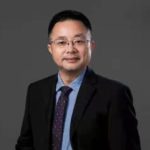
Dr. Ping QING,
Vice President of Huazhong Agricultural Universiy
Dr. Qing
Prof. Dr. Ping Qing, professor of agricultural economics, currently is the vice president of Huazhong Agriculture University, deputy director of the teaching steering committee of agriculture and forestry economics and management of the ministry of education in China, industrial economic scientist of the national algae industry technology system, vice chairman of Hubei provincial federation of social science, leader of provincial scientific research innovation team of food economy and food safety management in Huazhong Agriculture University. His research interests include agricultural economics and policy, agribusiness marketing and consumer behavior, food economics and nutrition, etc. With regards to these areas, he has conducted in-depth researches and hosted more than 10 related projects, which were approved by National Natural Science Foundation of China (NSFC), Chinese Academy of Engineering, and other national, provincial and ministerial organizations. He has also hosted an international collaboration project approved by NSFC and Consultative Group on International Agricultural Research (CGIAR). Specifically, his researches can be summarized as following points.
- Agricultural economics and policy. He mainly focuses on agricultural industrial economy, and agricultural economic policy, which provide reference for policy-design of the development of China’s agricultural industry. He presides over the work of the industrial economic post of the national algae industry technology system. Meanwhile, he has hosted the sub-projects of major strategic consulting projects of Chinese Academy of Engineering "To 2050 Chinese planting industry development strategy research" and other projects. Part of his academic researches have been published in Australian Journal of Agricultural and Resource Economics, Ecosystem Health and Sustainability and other journals. In addition, he has also served several policy consultation reports to the provincial and national governments, while the topics include the recovery of live pig production capacity and the development of live pig breeding industry, the abandonment of rural land, and the freshwater fish industry. Particularly, five consultation reports were positively approved by national leaders of China.
- Agribusiness marketing and consumer behavior. In this area, his research dare related to agricultural product injury crisis, agricultural product brand development strategy, consumer word of mouth communication, etc. His studies contribute brand building of agricultural products, agricultural products crisis management, and development of marketing strategy. He has hosted the project "Research on the damage of agricultural products injury crisis on industrial collective brand equity and brand remediation (2011-2013)" and "Research on network spillover effect of agricultural product injury crisis, evolution mechanism of public crisis events and social emergency management (2014-2016)", which were approved by NSFC. Moreover, he has also hosted the project "Research on branding of agricultural products (2014-2016)" and "Research on the development strategy of Chinese agricultural product brands under the background of internationalization and networking", which were approved by the ministry of agriculture in China. The work of related studies have been published in Management World (in Chinese), Canadian Journal of Agricultural Economics and China Agricultural Economic Review, etc.
Food economics and nutrition. He is also interested in biofortification, food consumption and nutrition and health of residents. His researches provide important reference for promoting a health and balanced diet for residents, ensuring food supply under the shocks of public health incidents and helping alleviate nutritional poverty. He hosted an international collaboration project "Research on the impact and evaluation of crop nutrition fortification on improving population nutrition and health (2016-2020)", approved by NSFC and CGIAR. He has also hosted the strategic consulting project of Chinese Academy of Engineering "Research on Sustainable Development Strategy of Food security in Central China (2016-2018)". His academic achievements have been published in peer-reviewed journals such as American Journal of Agricultural Economics, Nutrition, Chinese Rural Economy (in Chinese), China Rural Survey (in Chinese) and so on. Recently, he particularly focuses on the issues related to food security. In coping with the negative impacts of COVID-19 on food security, he has wrote several policy reports about securing food supply during the pandemic and submitted them to relevant departments. The studies assessing the impacts of the COVID-19 pandemic on Chinese residents’ food consumption have been published in newspapers including Farmer's Daily (in Chinese).

Dr. Minjuan ZHAO,
Vice President of Northwest Agricultural and Forestry University
Dr. Zhao
Dr. Zhao is a member of Jiusan Society, Ph.D. in Management (Northwest A&F University), Ph.D. in Economics of Agriculture and Natural Resources (University of Connecticut, USA); now professor and doctoral supervisor of Northwest A&F University; currently Northwest A&F University Economics Dean of the School of Management, chief expert of "Shaanxi Rural Economic and Social Development Collaborative Innovation Research Center", the first batch of philosophy and social science key research bases in Shaanxi Province. She is currently the vice president of China Foreign Agricultural Economics Research Association, the vice president of Shaanxi Agricultural Economics Association, a member of the Shaanxi Provincial Committee Decision Advisory Committee, and the executive director of China Agricultural Technology and Economics Association.
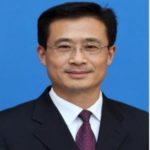
Dr. Feng HU,
Vice President, Nanjing Agricultural University
Dr. Feng Hu
胡锋,教授,博士生导师。现任南京农业大学副校长兼教育发展基金会理事长,江苏省生态文明研究与促进会副理事长,生态学国家级教学团队负责人,江苏省生态文明科技传播首席专家,Pedosphere、《生态学报》编委等职。曾任中国土壤学会副理事长、江苏省生态学会副理事长、全国高等学校教学研究会常务理事、全国高等农业教育研究会副理事长。
从事农业生态与水土资源综合管理教学科研工作30年,主持国家自然科学基金、“863”重大科技专项、公益性行业(农业)科研专项等项目30余项,获国家级教学成果奖2项、省部级科技进步奖3项,发表论文200余篇,授权发明专利18项,为享受国务院政府特殊津贴专家。
Professor Hu Feng, Vice President of Nanjing Agricultural University (NAU) in charge of international cooperation, is a well-known agroecology scholar who enjoys the State Council Special Government Allowance. He is a PhD supervisor of the College of Resources and Environmental Sciences, and Chair of the Education Development Foundation at NAU. In addition to being Vice Chairman of Jiangsu Ecological Civilization Research and Promotion Association, Prof. Hu is the head of the National Teaching Team of Ecology, Chief Expert of the Ecological Civilization Science and Technology Transfer in Jiangsu Province, and the editorial board member of Pedosphere and Acta Ecologica Sinica. Prof. Hu served as Deputy Chair of the Soil Science Society of China, Vice Chairman of the Ecological Society of Jiangsu Province, executive member of the Teaching Research Association of Universities in China, Deputy Chair of the Agricultural Higher Education Research Association of China.
Over the past 30 years, Prof. Hu has been devoting to teaching and research in the fields of agroecology and integrated management of soil and water resources. He has chaired more than 30 projects funded by the National Natural Science Foundation of China, the National Key High-tech R&D Program of China, and the Special Scientific Research Projects for Public Welfare (Agriculture), and so on. He has received dozens of honors, including two National Teaching Achievement Awards, and three Provincial and Ministerial Level Awards for Science and Technology Progress. He is the author or co-author of more than 200 papers and has been granted 18 patents.
Think Tank Dialogue:
Rural Prosperity & Climate Change
(April 7, 2022)

Erin Fitzgerald,
CEO of U.S. Farmers and Ranchers in Action
Ms. Fitzgerald
Erin Fitzgerald serves as Chief Executive Officer. She is passionate about encouraging contagious collaboration to build the sustainable food systems of the 21st century. Erin previously worked in dairy where she led a voluntary carbon goal, innovation projects and sustainable supply chain framework. Erin has been recognized in Chicago’s 40 under 40, a White House Champion of Change for Sustainable and Climate-Smart Agriculture, and an Aspen Institute First Movers Fellow.
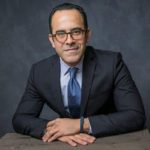
Ariel Ortiz-Bobea,
Cornell University
Dr. Ortiz-Bobea
Ariel Ortiz-Bobea is an applied economist with interests in agricultural, resource and development economics. At present, his research program is broadly focused on agricultural sustainability issues with particular emphasis on the statistical and econometric evaluation of climate change impacts on agriculture and other sectors of the economy.

Patricia A. Stapleton,
Political Scientist at the RAND Corporation
Dr. Stapleton
Patricia Stapleton (she/her) is a political scientist at the RAND Corporation. Her research interests include science and technology policy, risk perception and regulation of emerging technologies, risk assessment and communication, and the development and evaluation of diversity, equity, and inclusion initiatives.
In particular, Stapleton's academic work has focused on the adoption and regulation of emerging technologies in food production and assisted reproductive technologies—with recent attention to CRISPR and human germline editing. She also investigates topics in food security, particularly in the context of climate change. She uses qualitative methods and an historical institutionalist approach to examine the factors impacting the development of risk regulation (i.e., timing, political and institutional contexts, and public opinion).
Before RAND, Stapleton was director of the Society, Technology, & Policy Program and an assistant professor of political science at Worcester Polytechnic Institute. She holds a Ph.D. and M.Phil. in political science from the CUNY Graduate Center, as well as an M.A. in French literature from Rutgers University.

Craig Hanson,
VP of the World Resource Institute
Craig Hanson
Craig Hanson is the Vice President of Food, Forests, Water & the Ocean at World Resources Institute. In this role, he guides programmatic strategy, catalyzes projects, and ensures a focus on results, financial development, and strong staff capacity. Craig has co-developed a number of leading initiatives, including Global Forest Watch, the Global Restoration Initiative, the Forest Legality Alliance, the Food Loss and Waste Protocol, Champions 12.3, the Better Buying Lab, Resource Watch, the Food and Land Use Coalition, Cities4Forests and the Ocean initiative. He is a co-author of the current World Resources Report, Creating a Sustainable Food Future, and lead author on publications such as The Restoration Diagnostic and the Corporate Ecosystem Services Review.
Previously at WRI, Craig managed the Green Power Market Development Group, a coalition of a dozen Fortune 500 companies that helped pioneer corporate energy markets in the United States. This initiative won a U.S. EPA Innovation Award in 2004.
Craig spent five years as a management consultant with McKinsey & Company. Craig holds a Master’s in Environmental Change & Management from Oxford University. While at Oxford, he also earned a Master’s degree in Philosophy, Politics, & Economics with an emphasis on environmental economics while on a Rhodes Scholarship.

PAN Jihua,
Director, Inst. for Urban and Environ. Studies, CASS
Jihua PAN
Pan Jiahua, Member of the Academic Division, Chinese Academy of Social Sciences (CASS), and Professor & Doctoral Supervisor at the University of Chinese Academy of Social Sciences. He received his PhD in Economics from University of Cambridge in 1992.
He is currently the President of the China Society of Urban Economy, Vice President of the China Ecological Civilization Research and Promotion Association, Member of the National
Expert Committee on Climate Change, and Lead Author of the Intergovernmental Panel on Climate Change (IPCC) Mitigation Assessment Report. Previously, he served as the Director
of the Research Institute for Eco-civilization, CASS, Member of the Foreign Policy Advisory Group, UNDP Senior Project Officer, Senior Economist of the IPCC Mitigation Working
Group, and Editor-in-Chief of Urban and Environmental Studies. He enjoys special allowance from the State Council and has been selected as one of the “Cultural Masters”, “‘Four
Batches’ Talents”, and “Leading Talents in Philosophy and Social Sciences under National ‘Ten Thousand Talents Program’”. His main research areas include sustainable urbanization,
climate change economics, sustainable development economics, and economics of new paradigm for ecological civilization. He has presided over more than 60 national and
international projects, including key projects under the National Social Science Found of China, National Natural Science Foundation of China, and National Science and Technology
Support Program, major bidding and national projects of CASS, projects commissioned by relevant ministries and local governments, as well as international cooperation projects. He
has published more than 300 papers in academic journals such as Economic Research Journal, Social Sciences in China, Nature, Science, and Oxford Review of Economic Policy, etc.; as well as more than 10 academic monographs. Moreover, he has received 20 important academic awards such as the “Outstanding Scientific Research Achievement Award of CASS”, “Sun Yefang Economic Science Award” and “China Baogang Environment
(Academic) Award”.
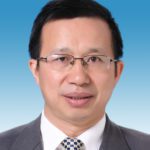
ZHANG Weijian,
Prof. of the Institute of Crop Sciences, CASS
Dr. Zhang
Zhang Weijian, Research Fellow at the Institute of Crop Sciences, Chinese Academy of Agricultural Sciences, and Leader of the Crop Farming and Ecology Innovation Team. He received his B.S., M.S. and Ph.D. degrees in agronomy from Nanjing Agricultural University
from 1990 to 1999, and conducted postdoctoral research at North Carolina State University from June 2001 to September 2003. In 2006, he was selected into the “New Century Excellent Talents Program” by the Ministry of Education. He has long been engaged in theoretical and
technological development and demonstration of cropping systems and ecology.
He has presided over a number of national research projects, including those under the “National Key Basic Research and Development Program” (i.e. “973 Program”), the “National Science and Technology Support Program during the 12th Five-Year Plan Period”, and the “National Key R&D Program during the 13th Five-Year Plan Period”, with fruitful research results achieved in areas of crop yield and quality and efficient use of water and fertilizer resources, rice yield and methane reduction in rice fields, conservation tillage and climate smart agriculture. The relevant theoretical innovations have been published in international important journals such as Nature and Science Advances, and more than 10 monographs and textbooks have been published; his technical research and development achievements have won 2 first prizes and 7 second prizes of Ministerial and Provincial Science and Technology Progress Award, and more than 20 invention patents have been authorized. He is a former member of the Discipline Review Group (Crop Science) of the Academic Degrees Committee of the State Council; member of the Expert Committee on Globally Important Agricultural Cultural Heritage, Ministry of Agriculture and Rural Affairs, and of the Expert Steering Groups for Northeast Blackland Conservation Tillage, and for Straw Comprehensive Utilization; scientist working on mining and innovation of traditional land use and conservation technologies under the National Green Fertilizer Industry Technology System; Vice Chairman of the Cropping System Society, China Association of Agricultural Science Societies; and agronomy consultant to international organizations such as World Bank and FAO.
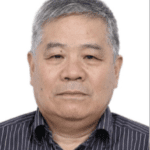
LI Zhou,
Professor and Former Director of the Rural Dev. Inst., CASS
Dr. Li
Li Zhou, born in Shanghai in September 1952, Research Fellow at the Rural Development Institute, Chinese Academy of Social Sciences (CASS). He is mainly involved in research on agricultural economics and ecological economics. In 1994, he was granted with the title of
“Young and Middle-aged Expert with Outstanding Contribution” by CASS and special government allowance by the State Council; and in 2018-2020, he was appointed as the Senior Academic Leader of the “Strategy of Scaling New Heights” by CASS.
From March 1978 to January 1982, he studied at the Forestry Department of Beijing Forestry College, majoring in Forestry Economics, and obtained a bachelor's degree in Agronomy;
from September 1984 to July 1986, he studied at the postgraduate class in Forestry Economics at Beijing Forestry University, and obtained a masters degree in Agronomy in 1987; from September 1989 to July 1993, he received on-the-job training at the CASS
Graduate School, and obtained a doctorate in Economics.
From December 1968 to March 1978, he worked at the No.2 Farm of the Ganlanba Farm in Jinghong County, Yunnan, as an agricultural laborer; from February 1982 to August 1984, he worked at the Institute of Forestry Economics, Chinese Academy of Forestry, as a research
intern; from August 1986 to November 2015, he worked at the Rural Development Institute, CASS, and served successively as the Assistant Research Fellow, Associate Research Fellow, Research Fellow, Deputy Director and Director of the Research Office, Deputy Director and
Director of the Institute; and retired in December 2015. He is currently the Chairman of the China Ecological Economics Society; and member of editorial boards of Chinese Rural Economy, China Rural Survey, Scientia Silvae Sinicae, Acta Ecologica Sinica, Chinese Journal of Eco-Agriculture and Journal of Ecology and Rural Environment.
Over the past 3 decades, he has published nearly 400 papers, including more than 30 English ones, in Chinese and international academic journals such as Social Sciences in China,
Economic Research Journal, Journal of Management World, Chinese Rural Economy, China Rural Survey, Scientia Silvae Sinicae, American Economic Review and Oxford Review of Economic Policy, etc.
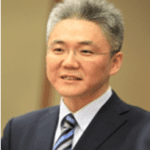
Moderator: WANG Lei, Director-General of the Bureau of International Cooperation at the Chinese Academy of Social Sciences
Wang Lei
Wang Lei is the Director-General of the Bureau of International Cooperation of the Chinese Academy of Social Sciences. He obtained his M.A. degree in Public Policy and Administration at the Netherlands Institute of Social Studies, and Ph.D. degree in Economics at the Graduate School of the Chinese Academy of Social Sciences. He is a Board Member of the Chinese Association of Friendship with Foreign Countries and a Board Member of the Chinese Association of European Studies as well as the Executive Director of the Silk Road Academy. He conducted research on European tax coordination in the context of European economic integration and the tax-related rules of WTO in the Faculty of Law under the Tilburg University of the Netherlands and in the European Tax College under the Leuven University of Belgium. The focus of his research is on China’s external economic relations covering issues of investment, trade and taxation.
Missed the 2021 US-China Ag Roundtable last year?
You can watch the Opening Celebration replay and learn more about it here
Supported by


Partners

